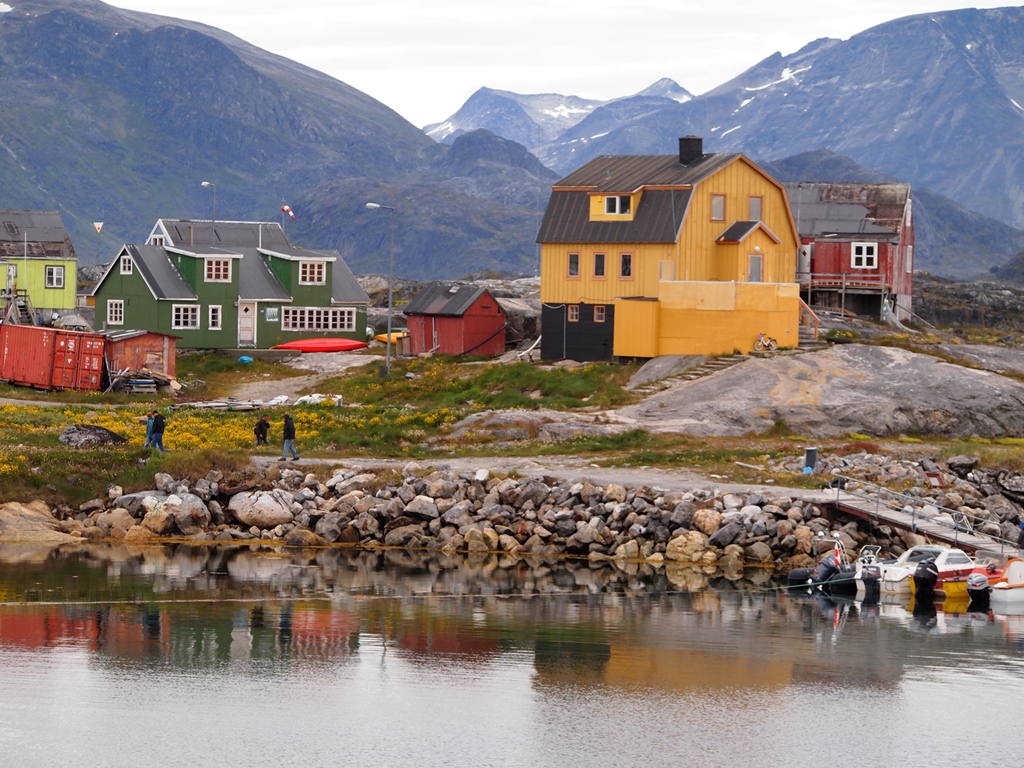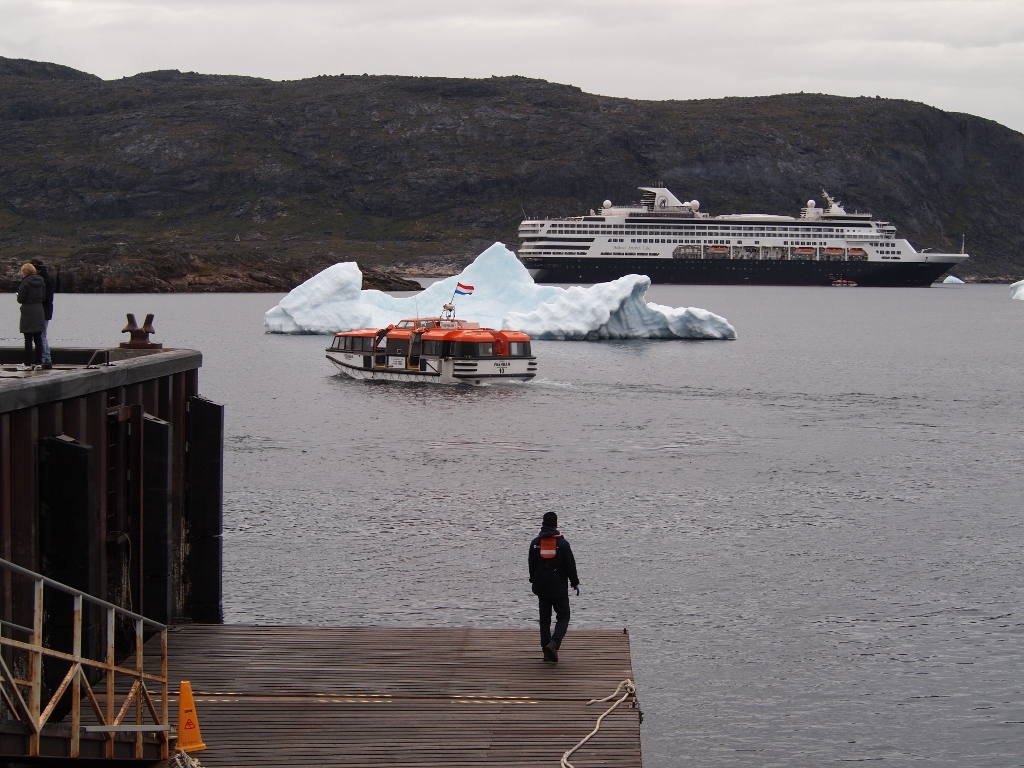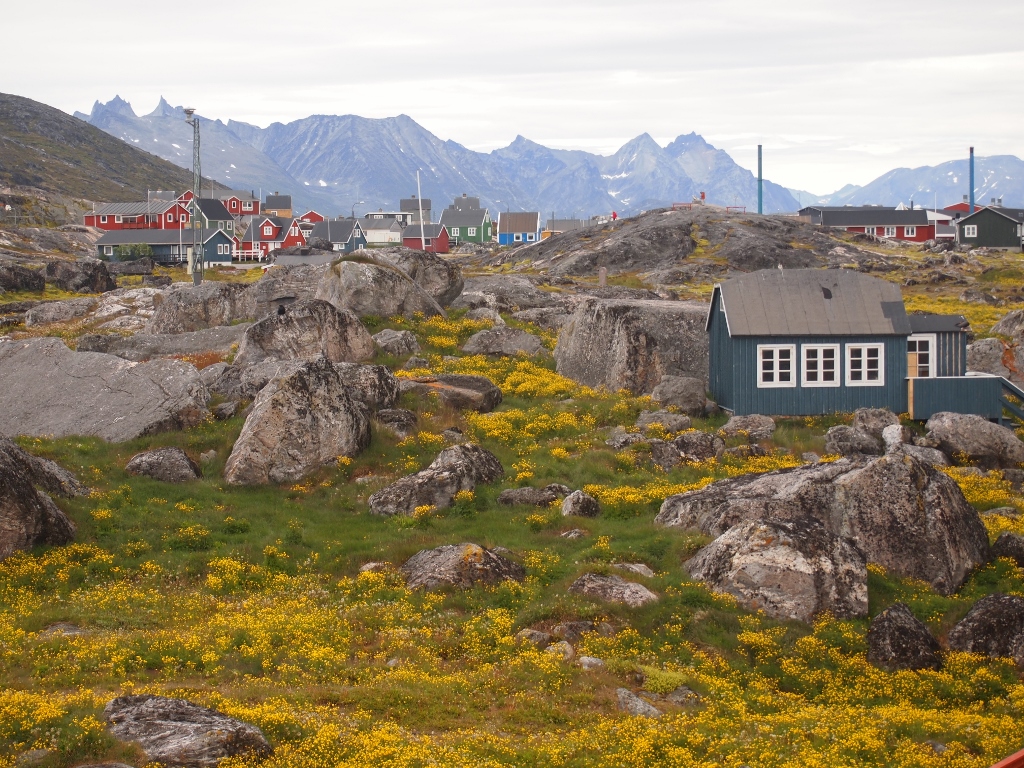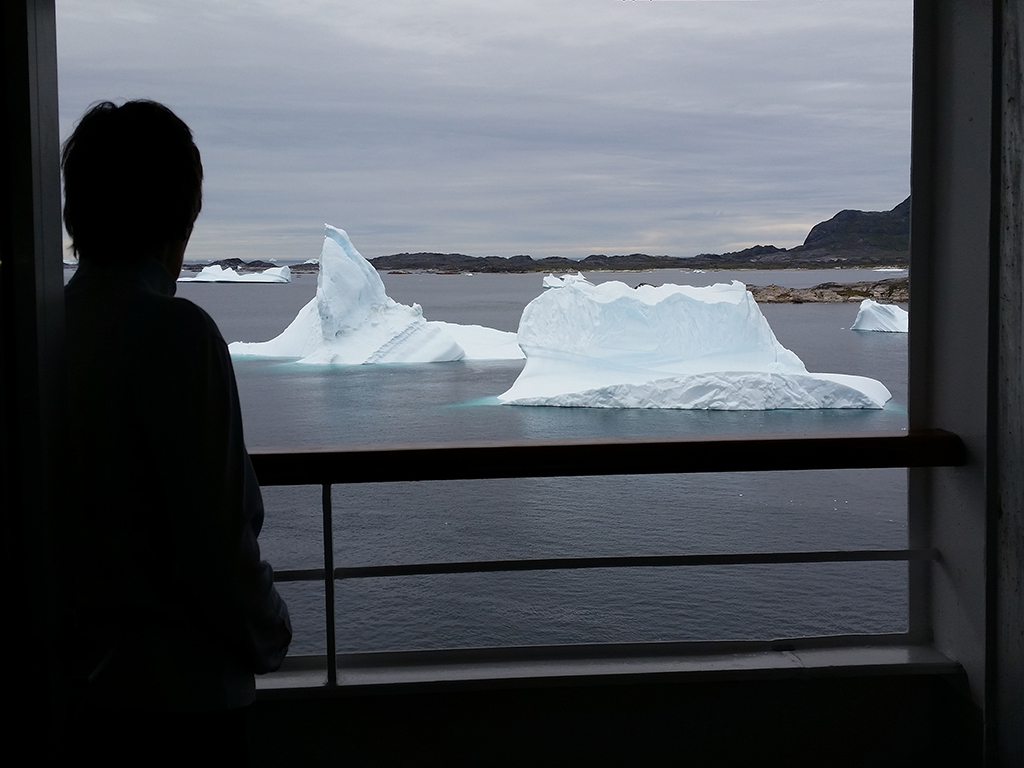We had to rise early to catch the 7:30 AM “lifeboat” to town. We could only stay till 1 PM, because the captain was expecting a head current, a headwind, and lots of icebergs on our way to our next destination, Ísafjörður, in northern Iceland, and we are on a tight schedule to make that by noon on Monday.
The scenery is magnificent, sharp craggy mountains rising up in the distance, scattered icebergs all over the harbor.
While walking through town, we heard something like a loud thunderclap. I looked around to see a large chunk break off one of the larger icebergs at the entrance to the harbor. It generated a big wave that rocked our ship. It looked like it might also make our ship’s exit more challenging. And indeed, the captain decided to gently maneuver our vessel around the iceberg, so we would no longer be blocked by it. So even when you think that the “coast is clear”, around here that may change in an instant, and a 57,000 ton cruise ship is still no match for an iceberg.
We went to an open-air museum. The entrance fee was $10 US, 5 Euro, or 25 Danish Kroner. The cruise line recommended getting some Danish pocket money. I got 200 Danish Kroner for $40 US. So, P.J. and I got in for $5 US each. Nevertheless, I saw a couple turning around and heard them griping about having to pay so much in US money. Apparently, some folks expect the almighty buck should be worshipped everywhere.
The museum was well done and interesting to me because I became immersed in what subsistence living in Greenland means. We were forewarned that the Inuit (formerly known as Eskimos, the original Greenland natives) still hunt seals and whales. This might offend our politically correct sensibilities. There were pictures of people celebrating when a dead whale was towed into town, and then enjoying an exquisite whale blubber meal. There were whale blubber barrels, and sealskin pockets in which to cure whale blubber.
I cannot be offended by people who have lived this way for thousands of years. I do not need whales to survive, and I am not intrigued to try whale blubber for lunch. What made whaling offensive is industrial-scale greed. Same as with the industrial-scale fishing on the Grand Banks, off the coast of Newfoundland. There are accounts from hundreds of years ago, that you could simply dip a bucket in the water to get fish. Now the Grand Banks have been totally depleted, and for now, beyond stock restoration.
The weather continues to be mostly cloudy and a cool 38 F (3 C) in the morning. Later it went up to 46 F (8 C). But there was no rain and not much wind while we were on shore. It was pleasant to walk around. My smartphone picked up a 3G signal and informed me that it was 95 F (35 C) in Rotterdam at the moment.
Photos © 2014 P.J. Gardner & Arjan Post. All rights reserved.






